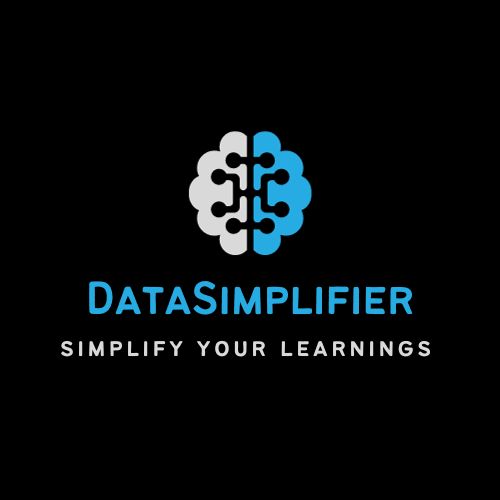Introduction :
Artificial intelligence and machine learning are probably the most transformative technologies across the globe, where India is no exception. For a candidate working their way up in India, cracking an interview by a rightly determined individual is probably their biggest milestone. Conversely, the sheer number of topics, tools, and techniques to be covered can be daunting for someone preparing to ace any AI & ML interview.
You could be an AI/ML first-timer looking to get upskilled or a seasoned pro getting on the train. This guide will take you through everything you need to know, covering essential concepts, tools, and tips about mastering interviews and unlocking your dream job in AI & ML, or data analytics.

We will cover the essential areas of what the interviewer would look for in a candidate, strategies for answers to technical questions, and advice to show yourself to be the best candidate. By the end of this guide, you’ll know everything and, by implication, feel more confident for the interview.(AI & ML)
1.Understanding the Fundamentals: What Interviewers Expect
AI and ML interviews are formatted to test both your theoretical knowledge and practical skills. Most interviewers will assess you on core concepts like algorithms, data structures, and programming and AI & ML-specific topics related to neural networks and natural language processing.
Important Areas to Rattle Your Brain On:
Math: Linear algebra, calculus, probability, and statistics form the bones. Be ready to question yourself on matrix operations, derivatives, probability distributions, and statistical models.
Algorithms & Data Structures: These are the backbones of AI & ML models. You should know how to search, sort, graph algorithms, and dynamic programming, for example. So, get ready to solve problems on the fly using the algorithms you just learned about like BFS, DFS, and Dijkstra’s algorithm.
Machine Learning Techniques: Familiarize yourself with supervised and unsupervised learning, classification algorithms such as decision trees, random forests, regression analysis, and clustering methods such as k-means.
Pro Tip: Be prepared to walk the interviewer through the math that goes into algorithms. Interviewers often require candidates not only to code solutions but also to describe why they selected that particular approach.
2.Must-Know Tools and Frameworks
Outside of learning you must understand some of the concepts theoretically, you should also be hands-on with popular tools in the AI and ML space. Some of these tools you should familiarize yourself with include:
Python: Most work in AI/ML is done through Python. Be comfortable with the libraries like NumPy, Pandas, and SciPy involved in data manipulations and frameworks to build a machine learning model like TensorFlow, Keras, or PyTorch.
Data Science Tools: Interviewers may also be interested in tools you have used for running experiments with your ML model and libraries for data visualization, such as Jupyter Notebooks, Matplotlib, or Seaborn.
Cloud Platforms: Knowledge of cloud-based machine learning platforms, such as AWS SageMaker, Google AI Platform, or Microsoft Azure, is now increasingly important for AI & ML roles.
Pro Tip: Get hands-on experience with small projects on these platforms to help solidify practical knowledge in the interview.
3.Problem-Solving Questions
It’s very common to find AI & ML interviewers asking open-ended problem-solving questions to assess how you think you will break down complex problems into small pieces and present your thought process to the reader clearly. To nail a problem, you need to understand the problem statement, draft clarifying questions to ensure that you understand all aspects of the problem, and not jump directly into code. How do I ace problem-solving?.
Plan Your Solution: Outline the steps you will take to solve this problem. These may include preprocessing the data, selecting a good model, and evaluating performance.

Explain Trade-offs : Be prepared to describe trade-offs between different algorithms or models, such as why you might favor a decision tree over a neural network.
Pro Tip: Be clear in your reasoning during your answer. Interviewers appreciate a systematic approach just as much as the answer.
4.Case Studies on AI & ML
Most AI/ML interviews consist of case studies that will be used to test your ability to apply theoretical knowledge in real scenarios. This could be like predicting customer churn, recommending products or images classification
Steps To Solve Case Studies:

Understand the Business Problem: Break down the problem, and identify what business metrics should be optimized.
Formulate the AI & ML Solution: Determine which model to use and why. Is that a classification model that could be used or is it actually a regression problem? Evaluate Results: Go through metrics, such as accuracy, precision, recall, and F1 score; the performance of your model should be evaluated. You can also think of how the model can be improved in terms of performance, like tweaking hyperparameters or feature engineering.
Pro Tip: Speak your solution aloud as you are solving case studies. Interviewers will want to hear your thought process in real-time.
5.Non-Technical Skills Matter Too
Technical expertise is certainly important, but companies also look for people with high levels of communication and teamwork skills and who can work well in cross-functional environments.
Key Non-Technical Skills:

Communication: The ability to make complex AI/ML concepts simple to explain is important in explaining the work done to various non-technical stakeholders.
Team Work: Most of the time you’ll be working on projects with other data scientists, engineers, and product managers. Provide some examples of previous projects in which you’ve worked effectively in teams.
Flexibility: This is a constantly moving field, AI/ML. Demonstrate your willingness to learn new technologies that are coming up and keep yourself well updated with the latest developments.
Conclusion:
It is not the easiest thing to prepare for an AI and ML interview, but still, with the right strategy you would surely ace those interviews and get your dream job. Master the basics, gain some hands-on experience working on tools, and improve your problem-solving skills, and you will be ready for the toughest interview questions. Now, the right answer is one thing, but showing how you think or how you approach a problem is another, right?.
Want to know more about AI & ML career advice and job openings? Join our Telegram channels. We regularly update you with industry updates and exclusive job postings. And, what’s more? We have job notification groups for different niches. You may want not to miss any of these updates.
Secret Message: This is only for our Premium Telegram Channel!!
Congratulations! You have reached the end, and that alone makes you quite interested in learning and growing in your career. As a reward, we are letting you into our Premium Telegram Group, in which a community of AI & ML professionals and learners meet to help each other. Drop your Telegram username in the comments and we’ll send you the invite link!
Final Words:
And you’re all set to rock your next AI & ML interview. This tutorial is meant to be comprehensive, but remember that the real key to success lies in practice. Continue to apply the strategies above, stay up to date with industry trends, and always be willing to learn. Good luck!
Best Programming Languages for Data Science
Share the post with your friends

1 thought on “Unlocking AI & ML Career Success: Effective Interview Strategies That Every Indian Student Requires”